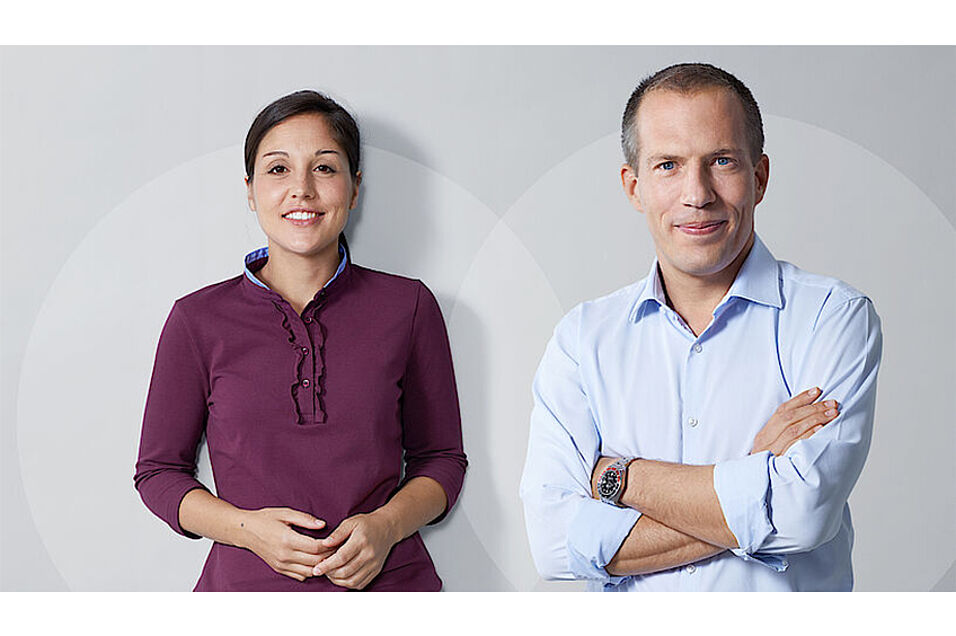Quick summary:
- Technologies of the future: Basic research leads to innovative ideas.
- Findings and technologies from quantum science are used to enhance everyday technology.
uni:view: Quantum science is often difficult to understand from the outside. What are you doing exactly as a quantum scientist?
Philip Walther: I lead a research group at the University of Vienna dedicated to quantum science. We investigate phenomena that exist in the small quantum world – features that behave differently than in our classical world. We try to exploit those features for new applications and use them, for example, to enhance communication, for better computers and other things people have not yet thought of. We have to develop our own technologies, which is why students learn how to work with the existing technologies and to think creatively of new possible applications and opportunities.
University of Vienna. Making a difference. Since 1365.
The University of Vienna provides great and diverse impetus. In the field of research, it cooperates with industry, cultural institutions and society. About 10,000 students graduate from the University of Vienna every year. The University prepares them for a professional career and encourages critical thinking and self-determined decision-making.
uni:view: Chiara Greganti, after your PhD at the University of Vienna, you founded a start-up with your peers. What are you working on and how can quantum technology show up in our daily lives?
Chiara Greganti: In my company VitreaLab, we exploit the technology used in quantum science research to develop new products for displays in mobile devices. That means we focus on solutions for everyday life applications.
Since it is the display that drains most of the battery in mobile devices, our first product will be a new display component that makes mobile devices more energy-efficient. Consumers will be able to experience this as soon as the display reaches the market. But we also want to expand to other, even more innovative products in the future, such as holographic displays so that everybody can see and interact with 3D images.
uni:view: To what extent does this research make a difference to our society?
Walther: It definitely has a high impact: It is a very broad application of the technology we developed in quantum research, which is a field of research that is really far from everyday application. However, it can be adapted to be useful to society anyway, as we see in smartphone displays: They are something that literally everybody uses. It is beautiful that our basic research can have such a strong impact and I think it is very likely that we will find parts of the work of VitreaLab in everyday devices in the future.
uni:view: Chirara Greganti, how do new research findings from science influence your work?
Greganti: I want to underline the cooperation between the research done at the academic level and the research done at the industry level. This link is important, in particular when based on constant feedback from both sides. This is how new ideas grow. We participate in conferences to see if there is potential for new collaborations. Working with an international team and colleagues from different backgrounds as well as going from ideas to experiments in various projects really helped me build a company.
uni:view: Philip Walther, which other ways of using quantum technology do you see in the future?
Walther: There will definitely be a shift in technology. Probably the most prominent example are computers using quantum technology. Currently we see a worldwide effort to build quantum computers, some of those from big players like IBM or Google. We at the University of Vienna also try to build one. We know of some possible fields of application for these computers, for example in pharmaceutics where they could help develop drugs in a much faster and more efficient way. Another application is data protection of clients using quantum computers or even quantum computer networks, which is a speciality of our group as we have been the first one to demonstrate this possibility. There is a big market for all those applications and many people are working on that.
But for me personally, the unforeseen side developments of innovative ideas are even more interesting, for example Chiara Greganti’s company. We develop very sophisticated technology, which can also be used for totally different applications and devices. This understanding of technology and the idea that we can find solutions nobody has ever thought of before are very common in quantum physics and very inspiring to me. I am convinced that our basic research on quantum technology will lead to many changes in the next 10 to 20 years. There are the big developments that we already see coming, but also a lot more. Creativity pays off.
Philip Walther is Professor of Experimental Photonic Quantum Computing at the Faculty of Physics at the University of Vienna. His research group conducts quantum information experiments and is one of the leaders in research on photonic quantum computing.
He is also heading a Christian Doppler Laboratory for Photonic Quantum Computing at the University of Vienna, and is speaker of BeyondC, a Special Research Programme (SFB) dedicated to identify applications of and methods for quantum information systems beyond classical capabilities.
Chiara Greganti completed her PhD in Quantum Optics at the University of Vienna and co-founded VitreaLab, a start-up developing displays using quantum technology.

